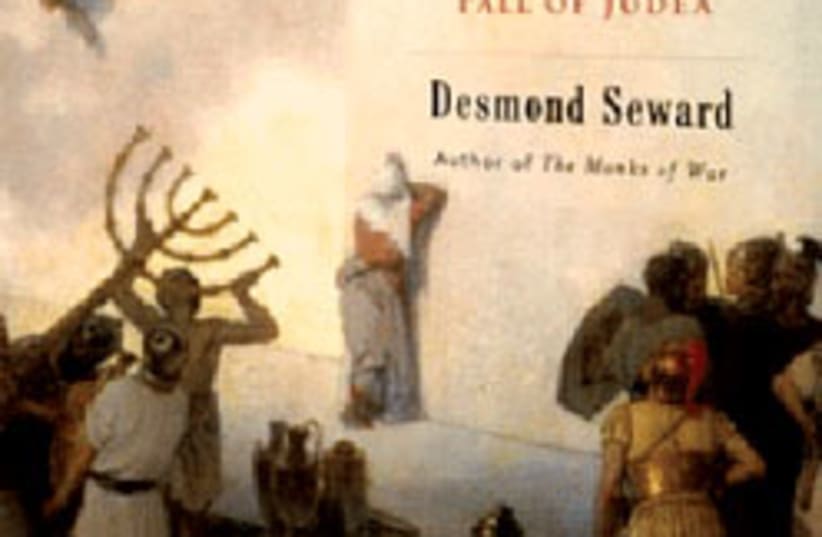Jerusalem's Traitor
By Desmond Seward
Da Capo Press
314 pp.
$28
Among all the tragedies that stain the pages of Jewish history, the cataclysmic events of the first century are an especially dark epic. We owe much of our knowledge of what befell the Jews in this terrible time to Josephus who used his role as a participant-observer to write his book, The Jewish War. His contemporary account of what happened is biased on his identification with the Romans as is masterfully described in this gripping biography.
Scholars have debated the accuracy of Josephus's observations and the issue of whether or not he was a traitor. Desmond Seward, a Cambridge graduate, is a British historian who has written many books, including biographies of numerous historical figures. He has carefully examined the evidence and he offers this narrative for general readers as an introduction to the life and times of Josephus.
Born in 37 or 38 CE, probably in Jerusalem, Josephus lived until about 95 or 100. He came from an aristocratic, priestly family as shown by his name, Yosef ben Matityahu Hakohen. When he joined forces with the Roman general Vespasian, he took the general's family name so that he became Flavius Josephus. These names tell us a great deal about the story of his life.
As a member of a priestly family, Josephus was well educated, studying the contributions of the Essenes, Pharisees and Sadducees. Moreover, in addition to his everyday language of Aramaic, he spoke Hebrew and "koine," a Greek-like language that was widely used in the Roman Empire. He visited Rome while in his 20s, remaining there for about two years, considerably expanding his knowledge. He came to admire the soldiers of Rome, to learn about Roman politics and to acquire skills in how to deal with Rome's rulers.
In 66, soon after Josephus returned home, war broke out between the Jews and the Romans. The Jews won some early victories and Josephus was appointed a general and governor of Galilee.
Further battles with the Romans and with Jewish rivals eventually led Josephus to give himself up to Vespasian, who was accompanied by his son Titus. Josephus prophesied that Vespasian would become emperor, thus gaining the favor of both Vespasian and Titus. The Jews regarded Josephus as a traitor, as he became closer to Vespasian, accompanying him in his increasingly successful war against them.
Eventually, Vespasian became emperor and Titus, who had become Josephus's patron, besieged Jerusalem. Josephus was an important member of his staff, trying to persuade the defenders to surrender. They ignored him, and while they put up a good fight, by September in 70, they were unable to hold out any longer. All of Jerusalem, including the Temple, was destroyed and most of its inhabitants were killed. Seward says, "The siege and fall of Jerusalem was the worst disaster suffered by the Jewish people until the 20th century. It is no exaggeration to call it a holocaust."
Josephus accompanied victorious Titus to Rome where he was given a pension and Roman citizenship, as well as an estate in Judea.
He settled down and wrote The Jewish War, followed by other books, including an autobiography, Vita, and a history of the Jews, The Antiquities of the Jews, which makes reference to the early days of Christianity. He remained in Rome, reading and writing history until about 95 when he died, although the exact date is unknown.
In his books, Josephus portrays himself as a "brave general," a "shrewd statesman," and a "benevolent governor." Historians have reached different judgments, some critical and some positive. Seward concludes that he was "vain and unscrupulous" but he deserves "admiration" and "respect." Readers will need to draw their own conclusion, armed by this vivid account of his experiences and by the knowledge that Josephus is of crucial importance to anyone interested in Jewish and Roman history.
The writer is the founding dean, Wurzweiler School of Social Work, Yeshiva University and dean emeritus, School of Social Work, University of North Carolina at Chapel Hill.
